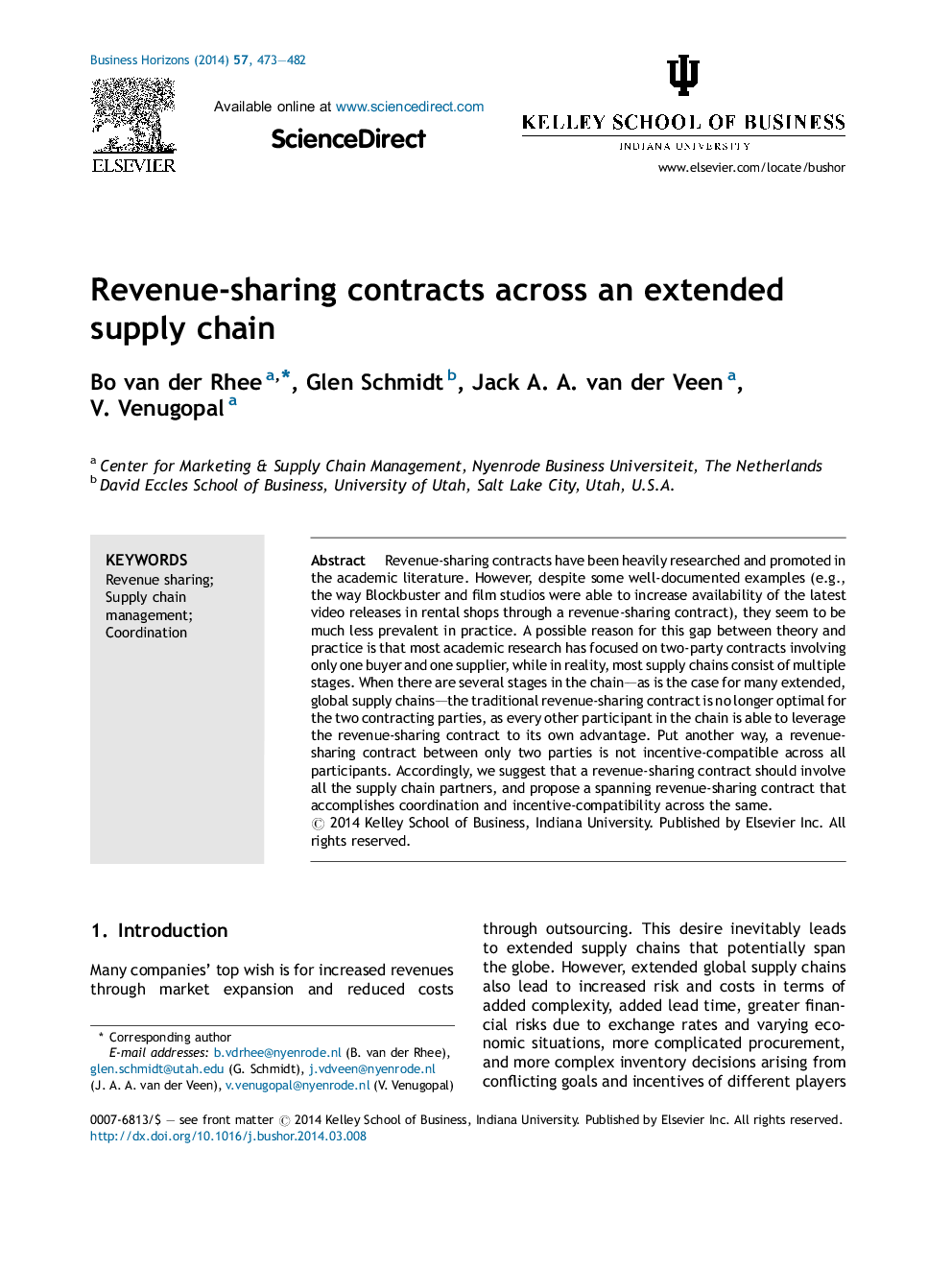| Article ID | Journal | Published Year | Pages | File Type |
|---|---|---|---|---|
| 1013993 | Business Horizons | 2014 | 10 Pages |
Revenue-sharing contracts have been heavily researched and promoted in the academic literature. However, despite some well-documented examples (e.g., the way Blockbuster and film studios were able to increase availability of the latest video releases in rental shops through a revenue-sharing contract), they seem to be much less prevalent in practice. A possible reason for this gap between theory and practice is that most academic research has focused on two-party contracts involving only one buyer and one supplier, while in reality, most supply chains consist of multiple stages. When there are several stages in the chain—as is the case for many extended, global supply chains—the traditional revenue-sharing contract is no longer optimal for the two contracting parties, as every other participant in the chain is able to leverage the revenue-sharing contract to its own advantage. Put another way, a revenue-sharing contract between only two parties is not incentive-compatible across all participants. Accordingly, we suggest that a revenue-sharing contract should involve all the supply chain partners, and propose a spanning revenue-sharing contract that accomplishes coordination and incentive-compatibility across the same.
